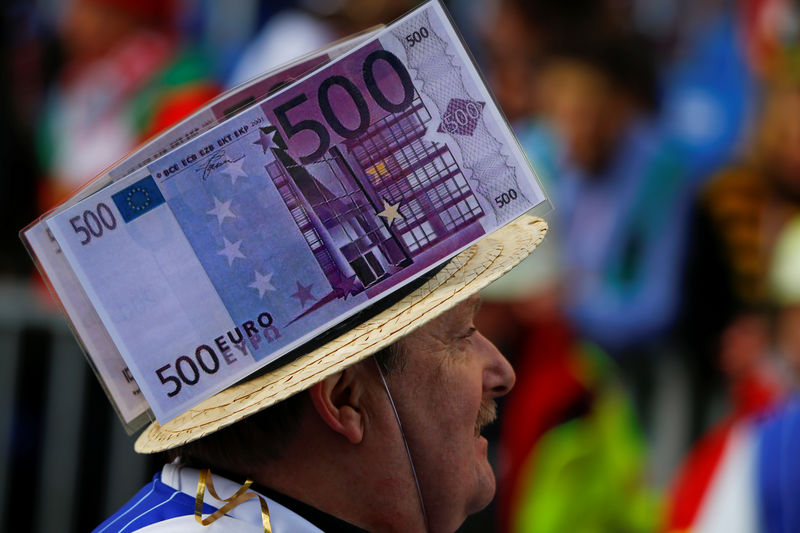By Francesco Guarascio
BRUSSELS (Reuters) - Euro zone inflation dropped to its slowest pace in nearly three years in September, more than previously estimated, the European Union statistics agency said on Wednesday.
The drop is likely to raise new concerns on the state of the euro zone economy and may reignite a debate within the European Central Bank on how to pursue its goal of keeping inflation close to but below 2% over the medium term.
Eurostat said prices in the 19-country euro zone rose 0.8% on the year, down from its earlier estimate of 0.9% and lower than the market consensus of 0.9%.
Eurostat also said the bloc's trade surplus with the rest of the world rose to 14.7 billion euros ($16.2 billion) in August, from 11.9 billions the previous year, as imports fell more than exports.
The revised inflation reading marked a more pronounced slowdown than August's 1.0%. It was the lowest rate since November 2016, when prices rose 0.6%.
However, a narrower inflation indicator, which strips out volatile energy and unprocessed food prices and is monitored closely by the ECB, rose to 1.2% in September from 1.1% in August, in line with earlier Eurostat estimates on Oct. 1.
Excluding energy, food, alcohol and tobacco, inflation grew 1.0% in September, Eurostat said, confirming earlier figures.
The revision of the headline figure was caused by lower-than-expected inflation for industrial products, another worrying sign for euro zone manufacturers, who are facing drops in output and in confidence.
Prices for industrial goods, excluding energy, went up 0.2% on the year in September, Eurostat said, revising its earlier 0.3% estimate.
Energy prices were confirmed falling by 1.8%. Inflation for service, the largest segment of the euro zone economy, rose 1.5%, in line with previous estimates.
The trade data also released on Wednesday confirmed manufacturing's difficulties. Exports of goods to the rest of the world fell by 2.2% on the year in August.
Imports dropped even more, 4.1%, as global trade tensions seemed to take their toll. Trade among euro zone states also fell 5.6% on the year.
Despite U.S. threats and sanctions against global partners, the latest data showed widening gaps. The EU trade surplus with the United States grew to 102.7 billion euros in the period from January to August, from 90.6 billions the year before.
The EU's trade deficit with China grew to 127.4 billion euros over the same period, from 116.3 billions a year earlier.

(This story has been refiled to change `more than' to `nearly' in first paragraph.)